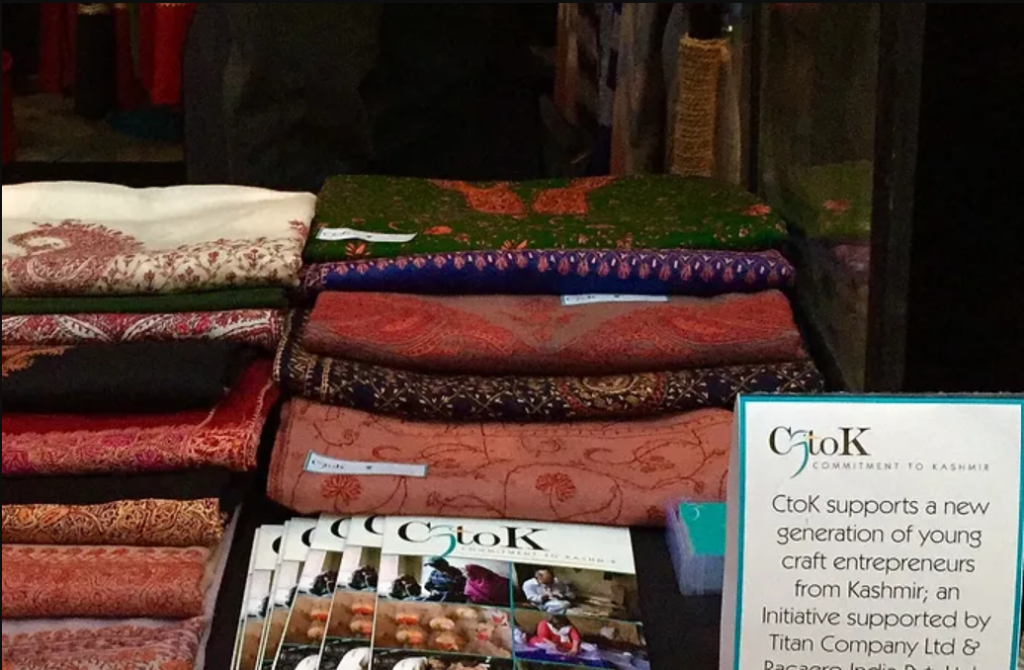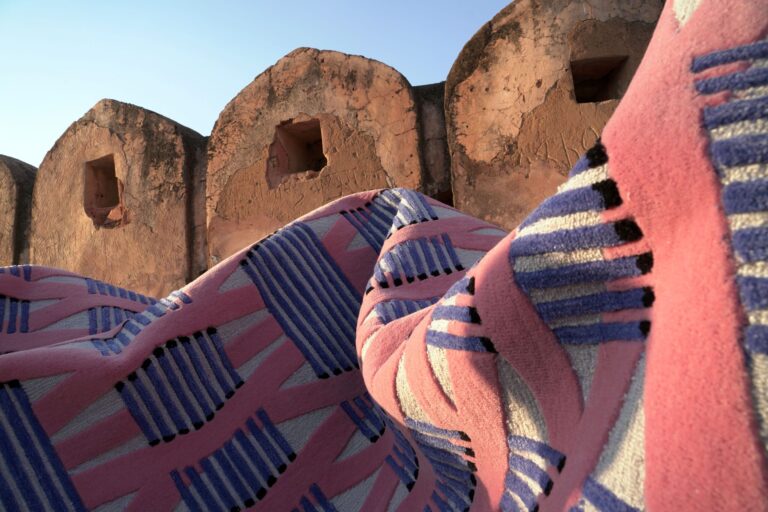Zaina by CtoK is a social enterprise that aims to provide sustainable livelihoods, pride, and identity to artisans from Kashmir by bringing their creations to a platform accessible to all. Follow our conversation with Shruti Jagota, Project Head at CtoK, as she narrates the journey of building an enterprise that promises to keep alive the craftsmanship of the valley in a rapidly urbanizing world.
The name Zaina was coined after one of the oldest bridges in Kashmir called Zaina Kadal, on river Jhelum. The area around it was a marketplace for Kashmiri handicrafts and to us, it means a bridge between the Kashmiri artisan stories and the world.
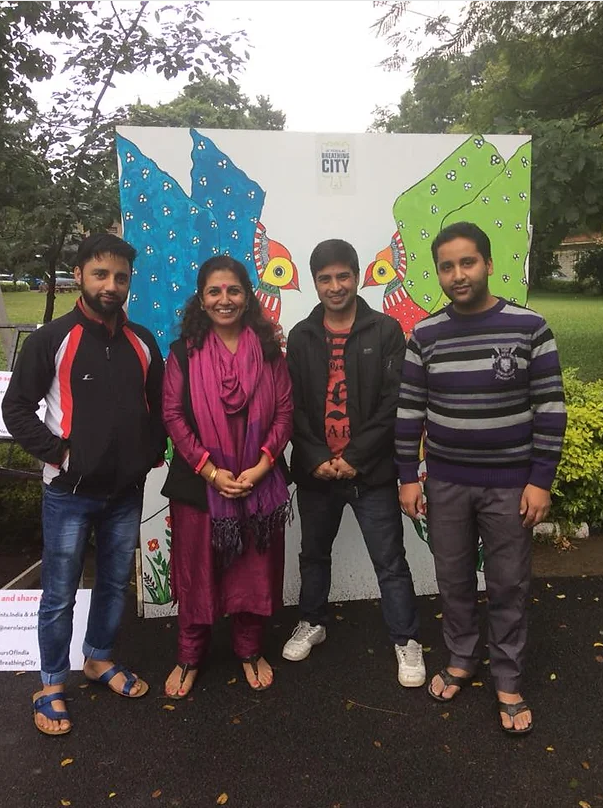
Commitment to Kashmir (CtoK) – Working towards a Better Tomorrow
Commitment to Kashmir (CtoK) is a Charitable Trust launched in 2011 by the late L.C. Jain – activist, economist, Gandhian, and a lover of craftspeople. He worked in the valley for a very long time and had seen it undergo all its troubles. Before leaving for the heavenly abode, he asked his wife, Dr. Devaki Jain, and six people from the craft fraternity to take care of the valley and the living traditions it possesses. The six people who got together included – Padma Shri Laila Tyabji – Chairperson at Dastkar, Padma Shri Gulshan Nanda – Former Chairperson of Central Cottage Industries Emporium, Gita Ram – Co-founder at Industree Foundation and Industree Crafts Pvt Ltd, Manjari Nirula – Executive Member of the Delhi Crafts Council, Ritu Sethi – Chairperson at the Craft Revival Trust, and Rathi Jha – Founder of the National Institute of Fashion Technology.
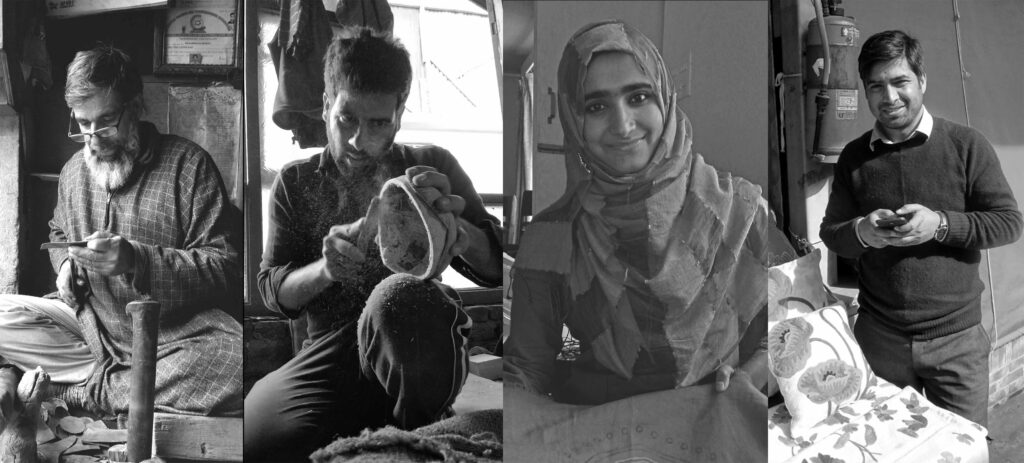
The main purpose of the trust is to support and nurture the next generation of artists, to get the youth involved, and to give them a sense of direction and purpose. Our objective is poverty alleviation and craft revival by aiding the creation and development of small businesses, owned and operated by artisans engaged in the production of traditional Kashmiri crafts and redefining the handicrafts sector by empowering craft leaders with the required skills and resources to meet changing market needs.
The valley has been majorly dependent on tourism, the craft industry, and horticulture. But the struggles faced by the valley have been long and arduous. Characterized by lockdowns, internet shutdowns, military operations, and social and political conflicts, Kashmir’s plight has slowed down its growth. Thus, our focus is on nurturing a younger generation of artists because the youth is drifting away from traditional crafts as they find better opportunities, and the social stigma around being a craftsperson poses additional challenges.
A Valley stuck in Time
The valley has seen shutdowns for more than three decades now. While it was a very rich source of the exchange of ideas, people, and cultures, it is stuck in time. Cut out from the world, the artisans’ designs are still stuck in age-old traditions. Despite being gifted with beautiful craftsmanship, their designs needed re-interpretation. We didn’t find any craft-based entrepreneurs while surveying the valley. Hence, the model of CtoK was designed to work with young artisans and help them set up viable craft-based businesses. We also work with people interested in design and crafts, who can multiply employability among other people. To revive the crafts, we went out on the lookout for artisans and started incubating enterprises. Since 2011, we have incubated about 37 enterprises across different types of crafts – Pashmina, Sozni, Wicker, Walnut Wood, etc.
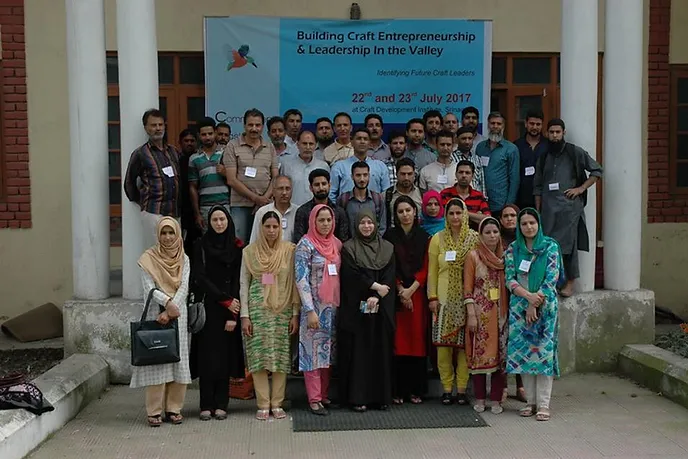
We don’t follow a cluster approach. We follow an entrepreneurial approach. Even in a cohort if there are two similar artisans, our intervention with them would be completely different. We have a very customized approach to make every enterprise different. Every enterprise has different concerns, problems, and solutions. We have a very holistic approach beginning with capacity building, skill, and design development, and going all the way to market intervention.
Building Cultural Entrepreneurs in Kashmir
One of our focus areas is to create diversity in the crafts community. Our design intervention does not stop at expanding the artisan’s aegis but also involves refining his/her existing skills. We had two Sozni artisans, and one of them was differently abled. The story around him was passionate even though his skill levels were low. So we went on to create such designs for him which weren’t intricate and yet displayed the boldness of his craft. The second artisan, on the other hand, was a very fine sozni artisan and for him, we chose very delicate designs.
And at CtoK it is not just about designing. We spend a lot of time identifying the person. We put them through a 6-month long process. We do interviews and group workshops to understand the levels of interventions needed and to make them understand the importance of the input which will be put into them. We also visit them to see how they operate and to ensure that they have genuine crafts, do they make everything by hand and what is their team like. Finally, they are called to Delhi where they meet the board and then the final selections are made. So it’s quite a rigorous process.
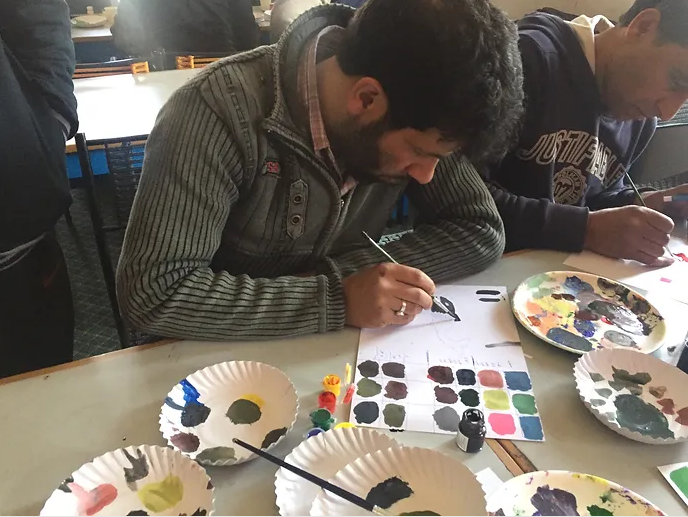
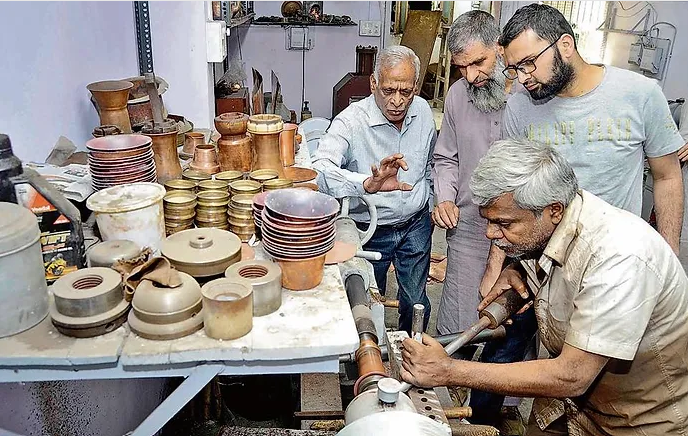
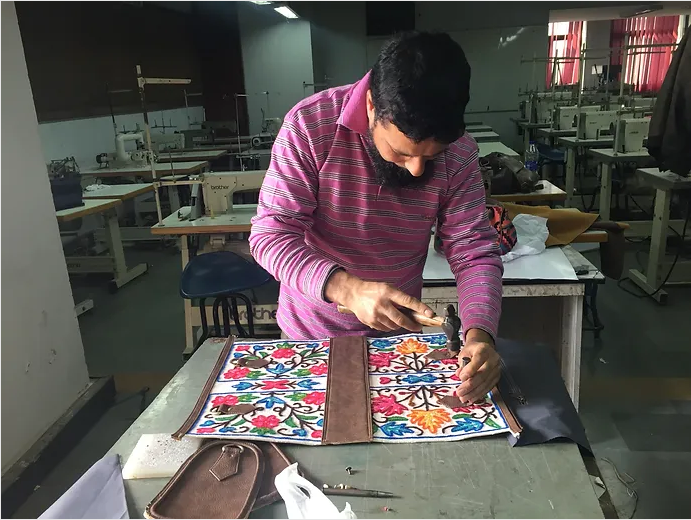
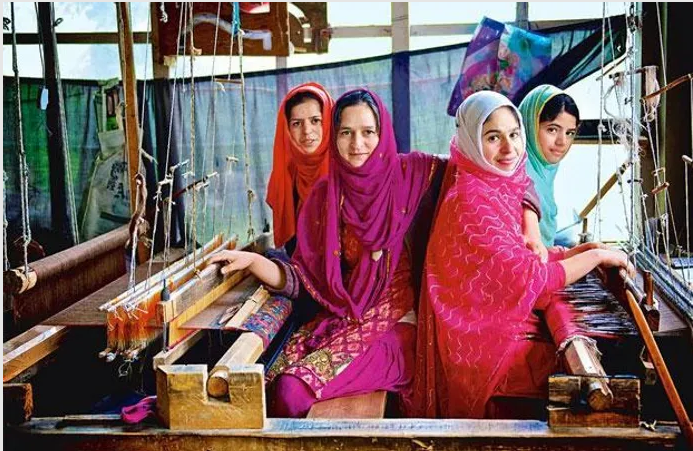
We are clear about the need for artisans includes establishing quality raw material linkages, assigning design mentors to artisans, organizing skill-building workshops, and increasing the impact network of their craft. We take our artisans and their products to showcase in different exhibitions around the world, and all the revenue goes to them.
Zaina – Bringing You a Piece of Kashmir
Trust doesn’t happen online. During Covid, nobody was looking for training, all they wanted was the market and income. Artisans were in really bad shape, some even had to come down to selling vegetables. That is when we started Zaina. We realized that we ought to start doing marketing for the craftsmen. As CtoK is a charitable trust, we weren’t allowed to sell or perform any kind of commercial activity legally. Zaina then started a for-profit organization in Kashmir again with the artisans that we’ve already supported over the years. We’re majorly online but we do participate in exhibitions.
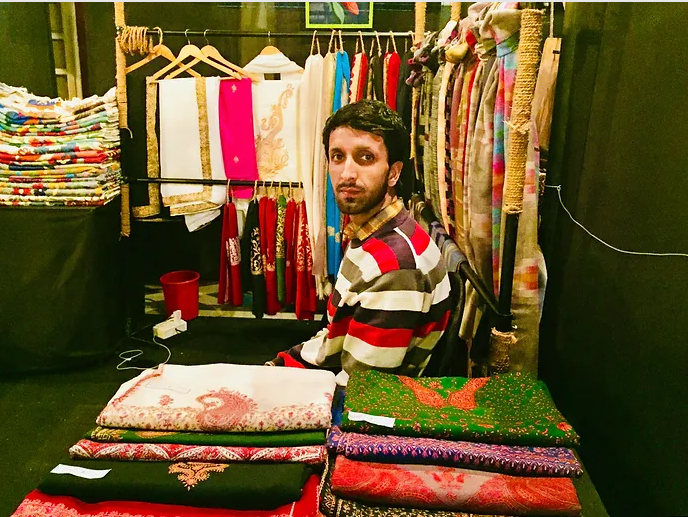
Our collections include home decor and furnishings, accessories, garments, jewelry, etc. Each product is handcrafted using age-old techniques and traditions. I believe that Kashmiri artwork reflects the region and culture way more strongly than any other craft form. So we decided to keep our products rooted in Kashmiri culture but yet suitable for contemporary homes in big cities like Delhi, Bombay, Bangalore, etc. Our customers are generally people above the age of 40-45 years because these products are expensive. And craft is never cheap.
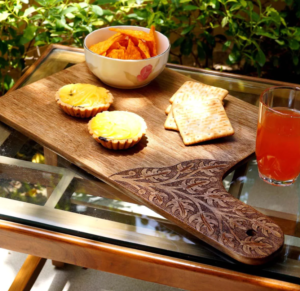
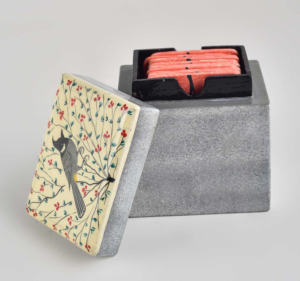
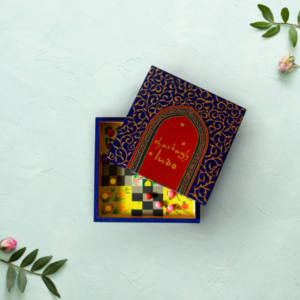
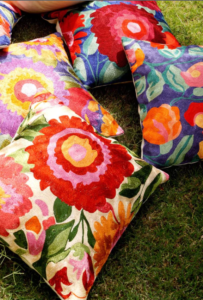

Logistics and packaging were humungous hurdles for us initially. Postal and courier services weren’t serviceable in Kashmir. Getting simple things such as cardboard boxes and tamper-tamper-proofing material was tedious. But now things are changing. We are getting on our feet by stepping into new markets and product lines, and so is CtoK with new projects and programs after the covid hiatus. With Zaina and each of its products, we hope to bring Kashmir’s beauty and uniqueness to each and every one.
NICEorg wishes Zaina by CtoK the best of luck in its journey ahead!
If your cultural enterprise is in any of our five focus sectors and you would be interested in being featured, write to us at NICEorg
